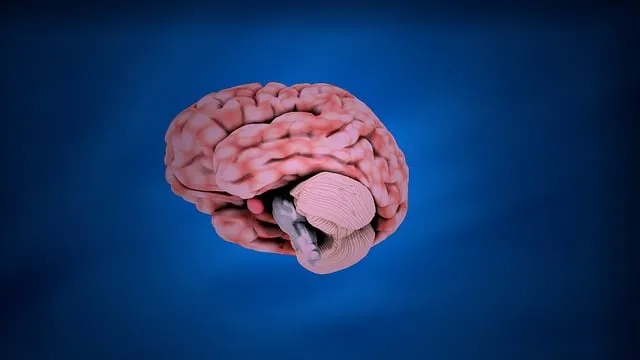Englewood Kaiser Permanente mental health services prioritize patient safety through comprehensive risk assessment, integrating emotional regulation skills, communication strategies, and tailored interventions. Specialized approaches address unique challenges, enhancing empathetic support while maintaining professional boundaries. A holistic risk assessment tool captures patient factors and previous treatment experiences, emphasizing self-care and trauma support services. Effective risk management strategies include open communication, evidence-based practices, and training programs focusing on empathy and personalized care to foster resilience and improve patient safety within the context of Englewood Kaiser Permanente mental health services.
In the high-stakes world of mental health care, risk assessment is a cornerstone of patient safety. This article delves into the intricacies of risk evaluation for professionals at Englewood Kaiser Permanente Mental Health, exploring unique challenges specific to this environment. We dissect essential components of a robust risk assessment framework and unveil strategies to mitigate risks, ensuring both patient well-being and clinical effectiveness. By understanding these aspects, mental health practitioners can navigate complex scenarios with enhanced confidence and skill.
- Understanding Risk Assessment in Mental Health Care
- Unique Challenges at Englewood Kaiser Permanente Mental Health
- Essential Components of a Comprehensive Risk Assessment Framework
- Strategies for Mitigating Risks and Enhancing Patient Safety
Understanding Risk Assessment in Mental Health Care

Risk assessment is a cornerstone of mental health care, crucial for ensuring safe and effective practice at Englewood Kaiser Permanente mental health services. It involves systematically identifying potential risks associated with a client’s presentation or circumstances, evaluating their likelihood and impact, and developing strategies to mitigate those risks. This proactive approach allows mental health professionals to deliver tailored support that addresses not just symptoms but also the broader factors contributing to vulnerability.
At Englewood Kaiser Permanente, understanding risk assessment goes beyond simply identifying red flags. It encompasses a holistic view of each client, factoring in their emotional regulation skills, communication strategies, and confidence levels alongside clinical manifestations. By integrating these dimensions, mental health professionals can craft interventions that not only address immediate crises but also empower clients with lasting coping mechanisms, fostering resilience and long-term well-being.
Unique Challenges at Englewood Kaiser Permanente Mental Health

Englewood Kaiser Permanente Mental Health faces unique challenges that require specialized approaches. As a prominent healthcare provider, they are at the forefront of addressing complex psychological issues, which often involve intricate patient interactions and diverse clinical scenarios. The environment can be high-pressure, demanding a constant balance between empathetic support and professional boundaries.
Professionals here navigate a delicate path, especially when dealing with patients experiencing severe anxiety or emotional dysregulation. Social Skills Training has proven to be an effective tool for enhancing communication and building supportive relationships, fostering a sense of safety and security for vulnerable individuals. By prioritizing these unique challenges, Englewood Kaiser Permanente Mental Health ensures that its services remain accessible, compassionate, and tailored to the diverse needs of its patient population.
Essential Components of a Comprehensive Risk Assessment Framework

A comprehensive risk assessment for mental health professionals at Englewood Kaiser Permanente should incorporate several essential components to ensure a thorough and effective evaluation. Firstly, a structured risk assessment tool tailored for mental healthcare settings is crucial. This tool must capture not only individual patient factors but also contextual elements like previous treatment experiences, social support systems, and access to resources. By integrating these aspects, professionals can gain a holistic view of the patient’s current and potential risks.
Additionally, the framework should emphasize the importance of self-care practices among mental health providers. Encouraging open discussions about workload, stress management, and cultural sensitivity in mental healthcare practice is vital for maintaining a healthy work environment. Moreover, integrating trauma support services within the assessment process recognizes the prevalence of traumatic experiences among patients and ensures that professionals are equipped to handle potential triggers or re-traumatization.
Strategies for Mitigating Risks and Enhancing Patient Safety

Englewood Kaiser Permanente mental health professionals face unique challenges when it comes to patient safety and risk management. To mitigate risks effectively, several strategies can be implemented. Firstly, fostering an environment that prioritizes open communication channels encourages patients to express their concerns or any potential triggers, allowing professionals to anticipate and address issues proactively. Secondly, integrating evidence-based practices tailored to individual patient needs enhances treatment outcomes and reduces the likelihood of adverse events.
Additionally, Englewood Kaiser Permanente can enhance patient safety through training programs focused on building empathy and improving self-esteem. These strategies not only strengthen the therapeutic relationship but also equip professionals with the skills to recognize subtle cues of distress in patients. By combining robust communication, personalized care, and evidence-based interventions, mental health professionals can create a supportive environment that cultivates positive thinking and fosters resilience, ultimately enhancing patient safety.
Englewood Kaiser Permanente mental health services, like all healthcare settings, face unique challenges in risk assessment. This article has explored essential components of a comprehensive framework, highlighting the importance of tailored strategies for mitigating risks and enhancing patient safety. By understanding the specific risks within these contexts, mental health professionals can deliver more effective care, ensuring the well-being of both patients and practitioners. Integrating these practices into standard protocols at Englewood Kaiser Permanente mental health can contribute to a safer, more supportive environment for all involved.

